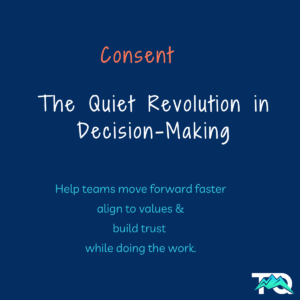Updated: September 7, 2020
Recently, I told a pro bono Subject Matter Expert that I would be declining their offer to work together on my posted project, and he thanked me.
Perhaps it’s my background in communications, my Midwestern roots, or my own experience as a pro bono consultant that makes me insist on these criteria…

Regardless of my ‘why’, consistent and immediate communications throughout the recruiting/interviewing process are a baseline, non-negotiable for me.
As the recruiter and project lead, I want to ensure that my name (my brand) and the organization I’m representing is viewed by anyone who comes into contact with me as reputable, honest, and transparent. I also consider that a pro bono consultant who has applied but may not be the best match for the posted project may become the perfect match at a future time, eliminating the need to begin a search from scratch.
So who was this individual that thanked me, even after I declined to work with him?
Let me first set the stage: I recently ran a project that required recruiting a pro bono consultant who would act as our Subject Matter Expert. My communications strategy was to be consistent, transparent, and responsive. After all, professionals who are offering their time and expertise at no cost deserve nothing but white glove treatment!
Each applicant received the necessary communication, personalized to our conversation and/or their application. At every opportunity, I communicated my intention or the next step.
- Thanks for your time / Immediately following the interview
- Decline to interview / transparent message (max # of candidates reached)
- Thank you / not a match — see my communications below!

- Thank you / invitation to collaborate
- Matched: Let’s schedule a project kick-off
- Would you find it helpful for me to share the rest of my recruiting / interview templates?
When you’re recruiting talent, do you communicate with the candidates who will not move forward in the process? Why or why not?
The high-caliber individual who I ultimately chose to not work with thanked me for my communications and even offered to assist with future projects. He even went on to suggest to the hosting platform that a new best practice be shared with all organizations using the service. I couldn’t agree more! And what a great way to help other organizations, as well.

Non-profit leaders, the minimal time you invest to ensure clear and consistent communications with anyone wanting to provide their expertise—and pro bono at that—will be a benefit to your organization.
In this recruiting process, the individuals I interviewed were all well-seasoned experts with a multitude of pro bono consulting experience on the platform. At the end of each 60-minute interview, I asked for feedback, and I was shocked to learn that I was one of the few nonprofits these folks had interacted with who actually interviewed them!
Would you find it helpful for me to share my interview process?
——————————————————————
Thank you, Jack, for your partnership and approval to share our interaction. I’m grateful to you for your quick action to suggest improvements to the hosting platform to enhance Nonprofit relationship-building tools…and for your countless hours of pro bono work!


